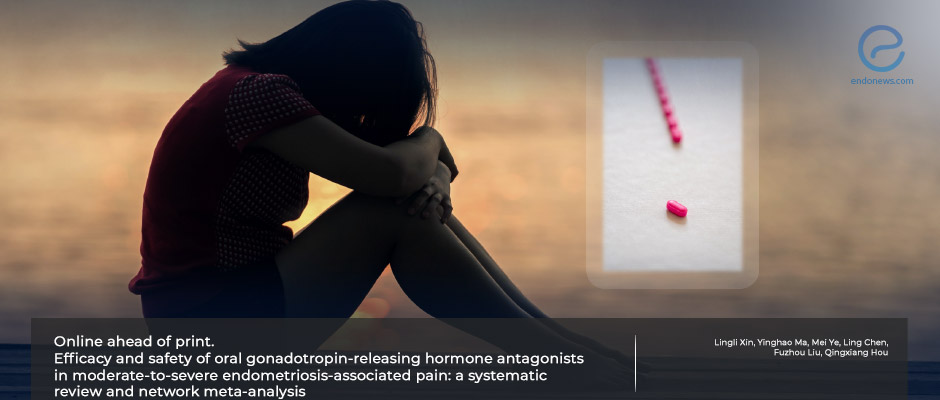GnRH Antagonists Can Effectively Reduce Endometriosis Pain
Mar 1, 2023
More research is needed on patients with different ethnic backgrounds.
Key Points
Highlights:
- Oral GnRH antagonists can effectively manage endometriosis pain.
- High-dose oral GnRH antagonists are favorable apart from linzagolix 75 mg.
Importance:
- Clinical treatment decisions and modalities could be reevaluated by the results of the study.
What's done here:
- This is a literature review and network meta-analysis of randomized controlled trials in women with moderate-to-severe endometriosis and treated with either oral GnRH antagonists or a placebo.
Key results:
- Elagolix 400 mg and ASP1707 15 mg were most effective in reducing endometriosis-associated pain.
- Relugolix 40 mg was the best drug in reducing the use of painkillers but it led to the highest rate of treatment-emergent adverse events hot flushes.
- Elagolix 250 mg was associated with the highest rate of treatment discontinuation due to treatment-emergent adverse events and a significantly decreased bone mimeral density in the spine.
- Elagolix 150 mg was associated with the highest rate of headaches.
Limitations:
- The limited number of eligible studies restricts the confidence of the findings. The small sample size of some studies; only a few nations that were analyzed are limitations.
- No data was available about the long-term effects of the treatment, headaches before treatment, and women’s sexual activity.
Lay Summary
Oral gonadotropin-releasing hormone (GnRH) antagonists are effective in reducing pain associated with endometriosis in 12 weeks, according to a new study published in the scientific journal Archives of Gynecology and Obstetrics. The safety and efficacy of most drugs were dose-dependent and a high dose was more favorable apart from linzagolix 75 mg.
More research is urgently needed on more participants from different ethnic backgrounds to confirm these findings, the authors of the study said.
The findings presented here could be beneficial in developing new clinical treatment strategies for the management of endometriosis-associated pain.
In order to clarify the potential effect of GnRH antagonists in managing moderate to severe pain caused by endometriosis, a team of researchers led by Dr. Qingxiang Hou conducted a literature review and meta-analysis of randomized controlled trials in women with moderate-to-severe pain due to endometriosis and treated with oral GnRH antagonists or a placebo.
The result of the analysis showed that the drugs that most effectively reduced pelvic pain, painful periods, and pain during intercourse were elagolix 400 mg and ASP1707 15 mg.
The best drug in reducing the use of other painkillers was relugolix 40 mg. However, the highest rate of treatment-emergent adverse events as well as the rates of hot flushes was also seen with relugolix 40 mg. The highest rate of treatment discontinuation due to treatment-emergent adverse events were seen with the use of elagolix 250 mg while the highest rate of headaches was seen with the use of elagolix 150 mg. A significantly decreased bone mineral density in the spine was also seen with the use of elagolix 250 mg.
The researchers concluded that oral GnRH antagonists could effectively treat pain associated with endometriosis.
Research Source: https://pubmed.ncbi.nlm.nih.gov/36656435/
GnRH antagonists endometriosis pain pelvic pain painful period painful sex

